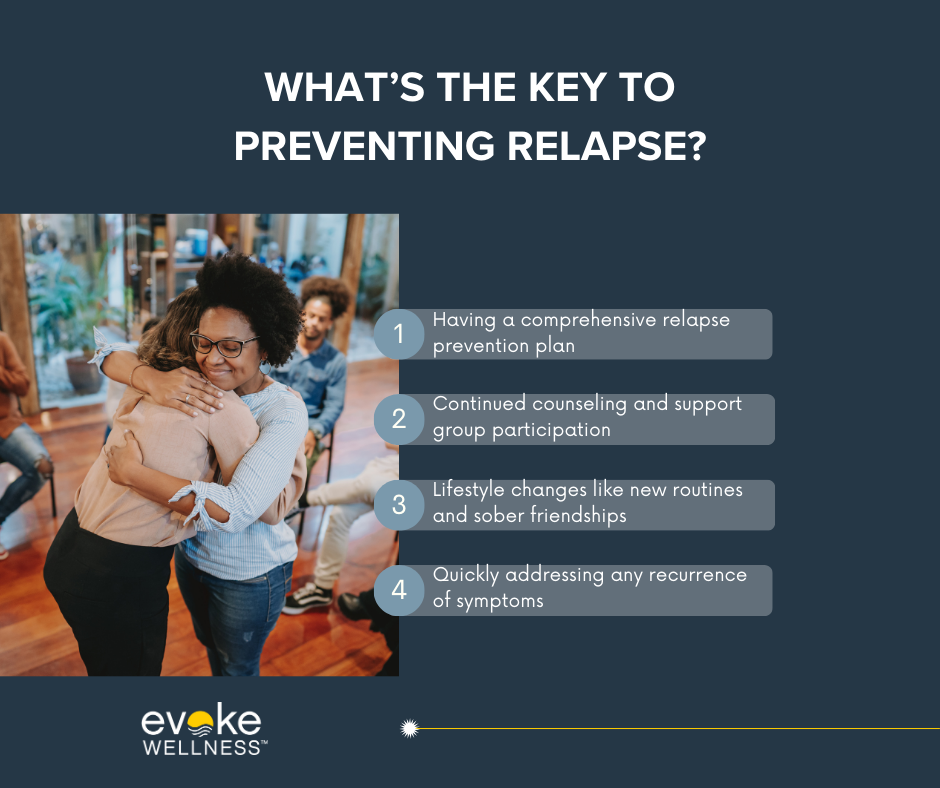As you embark on your journey to recovery, you may find that detoxification presents not only physical challenges but significant emotional hurdles as well. Recent studies indicate that up to 80% of individuals undergoing detox experience heightened anxiety and depression. These emotional symptoms, coupled with intense cravings, can make the process particularly daunting. However, understanding and preparing for the emotional aspects of detox can greatly improve your chances of success. This article will explore effective strategies for managing the psychological challenges you may face during this critical phase of recovery, empowering you to navigate the emotional landscape of detox with greater resilience and confidence.
Together, let’s embrace the journey to recovery and the promise of a new beginning. Call us at (833) 503-0734 today or reach out online.
Understanding the Emotional Side of Detox
Emotional Challenges
Overcoming addiction involves more than just physical detox. The emotional side can be equally challenging, triggering intense feelings like anxiety, depression, irritability, and cravings. As the VA reports, over 480,000 veterans received treatment for substance abuse disorders in 2021 alone. Confronting deep-rooted emotional issues is a crucial part of the recovery journey.
Managing Anxiety and Depression
Anxiety and depression are common during detox as the brain re-adjusts to life without substances. These feelings can seem overwhelming, but evidence-based therapies like Cognitive Behavioral Therapy (CBT) and Dialectical Behavior Therapy (DBT) teach coping strategies. CBT helps modify harmful thought patterns, while DBT focuses on emotional regulation skills.
Coping with Cravings
Intense cravings are one of the biggest hurdles in early recovery. Triggers like stress, social situations, or environmental cues can spark powerful urges to use again. Mindfulness practices, distraction techniques, and relapse prevention plans equip individuals with tools to resist cravings and maintain sobriety long-term.
Healing from Trauma
For many, substance abuse stems from unresolved trauma. Eye Movement Desensitization and Reprocessing (EMDR) is an evidence-based therapy that helps process and desensitize traumatic memories. Combined with group support, motivational interviewing, and holistic approaches, trauma work facilitates profound emotional healing.
Continued Support
The path to lasting recovery extends beyond initial treatment. Aftercare programs with ongoing therapy, 12-step meetings, and peer support groups provide a vital safety net. This continued care nurtures emotional well-being and fortifies relapse prevention strategies for successful community reintegration.
Anxiety and Depression During Detox
Emotional Challenges
The detox process can bring significant emotional upheaval. As the body rids itself of substances, the brain’s neurochemistry shifts, often triggering anxiety, depression, mood swings, and irritability. These challenges are common and temporary side effects.
- According to a 2021 study, over 60% of those in early recovery experienced anxiety or depressive episodes.
- Fluctuating dopamine and serotonin levels contribute to emotional distress during detox.
Coping Strategies
While uncomfortable, there are healthy ways to manage these feelings. Counseling, support groups, mindfulness practices, and holistic therapies can all provide relief.
- Cognitive-behavioral therapy equips individuals with tools to reframe negative thought patterns.
- Yoga, meditation, and breathwork regulate the nervous system’s stress response.
- Having an empathetic support network is vital during this vulnerable stage.
Professional Support
A quality detox program provides comprehensive emotional support alongside medical care. Experienced staff understand the challenges and use evidence-based methods.
- Dual diagnosis treatment addresses co-occurring mental health issues like anxiety or depression.
- Around-the-clock monitoring ensures safety and prompt response to any escalating symptoms.
- Group therapy and peer support foster a sense of community during the journey.
With professional guidance and healthy coping mechanisms, the emotional turmoil of detox can be navigated successfully. The path to recovery requires patience, perseverance, and self-compassion.
Managing Cravings and Withdrawal Symptoms
The Challenges of Cravings and Withdrawal
Overcoming addiction often involves battling intense cravings and uncomfortable withdrawal symptoms. As substances leave the body, the brain struggles to regain balance, triggering unpleasant physical and psychological effects. According to a study by SAMHSA, over 90% of those with substance use disorders experience cravings that can last months or even years after detox.
Medication-Assisted Treatment (MAT)
To manage cravings and ease withdrawal, many treatment programs incorporate medication-assisted treatment (MAT). Medications like Vivitrol help block the euphoric effects of alcohol and opioids, reducing cravings and preventing relapse. Other medications, such as buprenorphine/naloxone (Suboxone), can alleviate withdrawal symptoms and stabilize brain chemistry.
Holistic Therapies for Mind-Body Balance
Complementary holistic therapies also play a crucial role in managing withdrawal and cravings. Practices like meditation, yoga, and breathwork can restore mind-body balance, reduce anxiety, and improve sleep quality during the detox process. These natural approaches, combined with professional counseling and support groups, provide a comprehensive framework for long-term recovery.
Dual Diagnosis Treatment for Co-occurring Disorders
For individuals struggling with both substance abuse and mental health issues, like depression or anxiety, dual diagnosis treatment is essential. Evoke Wellness offers integrated therapies that address these interconnected challenges simultaneously, providing a holistic approach to managing cravings, withdrawal symptoms, and underlying psychological factors.
Transitioning to Residential Care
After medical detox, transitioning to a residential treatment program can provide a safe, nurturing environment free from triggers and temptations. With 24/7 support, structured therapies, and a focus on developing coping strategies, individuals can strengthen their recovery foundation and better manage cravings for lasting sobriety.
Creating Healthy Routines for Emotional Wellbeing
Establishing Structure and Balance
Detox and early recovery can be an emotionally turbulent time, filled with overwhelming feelings and challenging moments. Establishing a structured routine with intentional self-care practices can provide a sense of stability and control. Start by setting a consistent sleep schedule, meal times, and designated periods for exercise or relaxation. This balance helps regulate emotions and creates a foundation for rebuilding healthy habits.
Mindfulness and Stress Management
Mindfulness techniques like deep breathing, meditation, and yoga can be invaluable tools for managing cravings, anxiety, and negative thought patterns during detox. As recommended in 12-step programs, taking a few moments to ground yourself in the present can help diffuse intense emotions and prevent relapse. Other stress-relieving activities like journaling, art therapy, or spending time in nature can also promote emotional regulation.
Building a Support Network
Isolation and loneliness can exacerbate the emotional challenges of detox. Residential treatment programs provide a built-in community of peers on the same journey, offering mutual understanding and encouragement. Maintaining these connections through alumni groups, sober meetups, or family counseling sessions can foster a vital support system for ongoing emotional wellbeing.
Self-Compassion and Growth
The recovery process is rarely linear, and setbacks or difficult emotions are normal. Practice self-compassion by acknowledging your progress, celebrating small wins, and reframing setbacks as opportunities for growth. Engage in activities that nurture your sense of purpose, whether it’s volunteering, pursuing a hobby, or setting achievable goals. With comprehensive care, you can develop the resilience and coping strategies needed to navigate the emotional side of detox and build a fulfilling, sober life.
FAQs About Coping with The Emotional Side of Detox
What emotional challenges are common during detox?
- Anxiety, depression, irritability, mood swings, and intense cravings
- These symptoms are part of the withdrawal process as the brain re-adjusts to being sober
- Over 20% of those in early recovery relapse due to difficulties managing emotions
How can therapy help cope with detox emotions?
- Evidence-based therapies like CBT and DBT teach coping strategies
- CBT helps identify and change negative thought patterns
- DBT provides mindfulness and distress tolerance skills
- Group therapy offers peer support and shared experiences
What role does medication play?
- Certain medications can help alleviate withdrawal symptoms
- Anti-anxiety or antidepressant drugs may be prescribed short-term
- Medication is most effective combined with counseling
Are there holistic ways to manage emotions?
- Relaxation techniques like meditation, yoga, deep breathing
- Nutritional support with vitamin/mineral supplementation
- Exercise releases endorphins and improves mental health
- Creative outlets for healthy self-expression
What’s the key to preventing relapse?
Having the right tools makes coping with detox emotions manageable. A holistic program providing therapy, medication management, and lifestyle guidance is proven most effective for long-term recovery.
Conclusion
As you navigate the emotional challenges of detox, remember that you’re not alone. Recent studies show that up to 50% of individuals experience anxiety or depression during withdrawal. However, with proper support and coping strategies, you can overcome these hurdles. Evoke Wellness at San Marcos offers comprehensive programs tailored to address both the physical and emotional aspects of detox. By focusing on holistic healing, you’ll be better equipped to manage cravings, regulate emotions, and build a foundation for lasting recovery. Take the first step towards a healthier, substance-free life today. Your journey to emotional wellbeing and sobriety starts here, with professional guidance and evidence-based treatments designed to support your unique needs.
Begin Your Journey with Evoke Wellness at San Marcos
If you or a loved one is considering treatment, Evoke Wellness at San Marcos invites you to contact us. Our compassionate team is ready to answer your questions, discuss your needs, and help you take the first steps toward recovery. At Evoke Wellness, you will find more than just a treatment program – you’ll discover a community dedicated to your wellness and success. Together, let’s embrace the journey to recovery and the promise of a new beginning. Call us at (833) 503-0734 today or reach out online.



